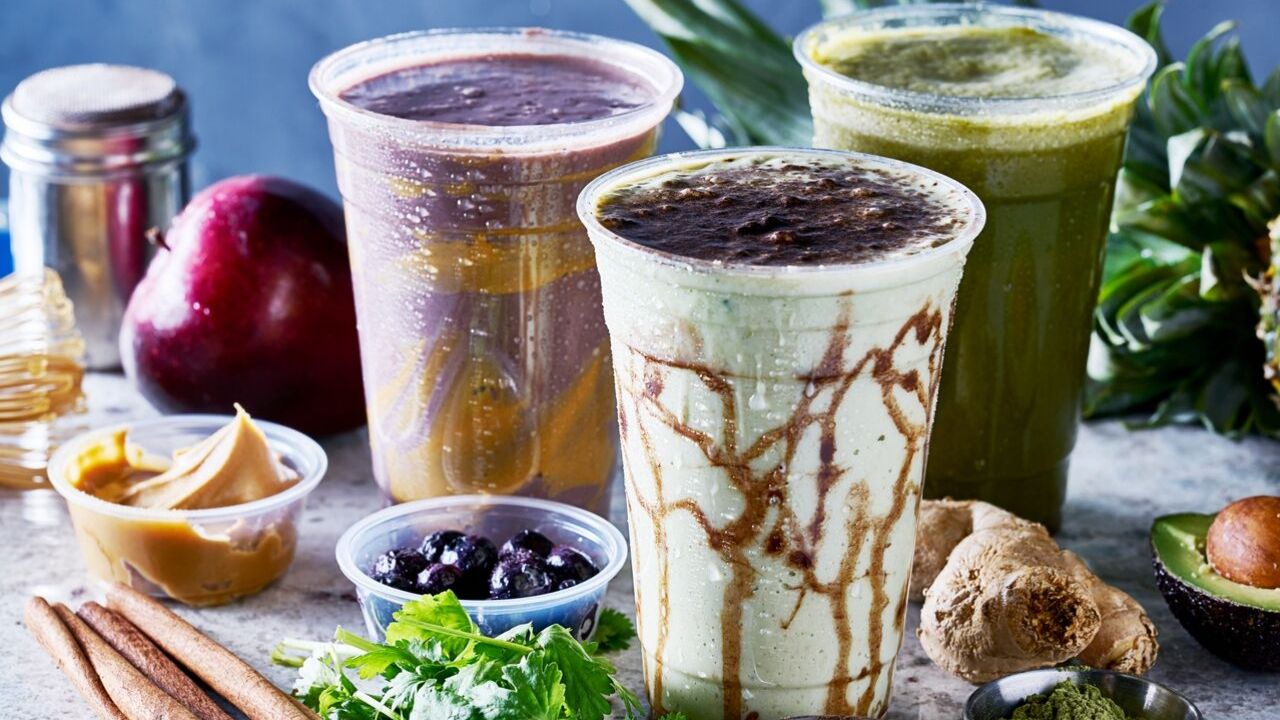CAPSLOCK BANDIT
Master Don Juan
- Joined
- Jul 29, 2020
- Messages
- 2,816
- Reaction score
- 2,156
This post is very long and verbose, just a friendly warning if your looking for a digestible read.
If you examine most professional body builders who have storied careers, most of them have a similar story about needing to change how they are fueling their bodies every now and then.
For me, I do so much better on carbs but it also causes the bloat, don't get me wrong the gym pump is unrivaled; setting a PR? I need carbs, end of story.
When I first began rotating my diet, I went from Carbs to Keto, because I wasn't doing the keto diet properly I ended up giving myself gallstones and basically destroyed my gallbladder, some of these gallstones also made it past my gallbladder into my bile duct, an issue im still dealing with 4 years later, it's incredibly dangerous and the most common route to bile duct cancer which is commonly fatal... I wish somebody had told me all this stuff before I changed my diet! To me, it was just fuel, didn't think all these complications could arise from it.
Now, I can still do keto but it involves maximizing my time between meals, quite a bit of intermittent fasting and recognizing there's limits to what I can digest, but it's all a learning experience.
So after all my experiences, I understand that carbs are best for building muscle, while keto is more for leaning out, trimming down the fat while maintaining the muscle, it's been a struggle since I started this in 2019, had a ton of hurdles as I talked about above, but now that it's dialed in, this is just different, I've completely changed my body!
From 2011 to 2019 I spent all this time in the gym, which I now understand I was basically floundering and wasting my time because the diet was not dialed in. The diet is everything, it's so much more important than being in the gym, you can't recover right or build muscle right if you aren't hitting your macro balance, but when you find the balance, the progress you can make is insane.
So here's what I've learned that have changed my diet game and maybe it'll serve you as well:
1. When you are weaning yourself off of carbs, you have to be very careful to not spike your insulin levels; insulin regulates our hunger cravings, there is a very real threshold, if you pass this threshold by a single carb your gonna spike your insulin and you'll experience hunger cravings that will make you think your about to faint if you don't eat, this is the most common point of failure when weaning off carbs...
Even worse, even if you satiate this craving, it'll be back again in an hour or 2, it's the friggin worst.
To mitigate this, you never want to consume carbs that digest fast during this time, you want something with lots of fibre, my go to is Oatmeal. The most common point of failure food: Protein Shakes!!! Protein Shakes can have 0 carbs on their nutrition value chart, but our body can only digest a certain amount of protein, for plant based protein that is 17%, meaning the other 83% of that protein is bring converted into carbs, there's your insulin spike right there because this is a drink, not a food, it's going to be digested very fast.
Next common point of failure: blending fruits, a common diet trick which is absolutely terrible for you, if your doing it, stop now. I'm just gonna cut the list out why and paste it here as it's long why but it's from this site: https://www.linkedin.com/pulse/consuming-whole-fruits-vegetables-rather-than-juicing-dr-shilpa
Fiber content: Whole fruits and vegetables contain dietary fiber, which is an important component for digestive health and helps promote feelings of fullness. When fruits and vegetables are juiced or blended into smoothies, the fiber content is often reduced or eliminated. Consuming the whole fruit or vegetable allows you to benefit from the fiber, which aids in digestion, regulates blood sugar levels, and supports a healthy gut.
Satiety and portion control: Eating whole fruits and vegetables requires more chewing and takes longer to consume, leading to a greater sense of satiety. The fiber and bulk in whole produce help you feel fuller for longer, which can aid in portion control and prevent overeating.
Nutrient retention: Freshly juiced or blended fruits and vegetables can still provide essential vitamins, minerals, and antioxidants. However, exposure to air and light during juicing or blending can cause some nutrient loss. Consuming whole produce helps retain the natural nutrients more effectively.
Blood sugar management: Whole fruits and vegetables generally have a lower glycemic load compared to juices and smoothies. The fiber in whole produce slows down the release of sugars into the bloodstream, which can help manage blood sugar levels. Juices and smoothies, on the other hand, can lead to a more rapid increase in blood sugar due to the concentrated sugar content.
Chewing and oral health: Chewing whole fruits and vegetables stimulates saliva production, which aids in digestion and promotes good oral health. Chewing also signals the brain that you are eating, contributing to the feeling of satisfaction and enjoyment during a meal.
Mindful eating: Consuming whole fruits and vegetables encourages mindful eating practices. Taking the time to eat and savor the texture, taste, and aroma of whole produce can enhance the overall eating experience and promote mindful and intuitive eating habits.
Main take away is that our saliva must coat the food we eat to help aid in digestion, if you give your saliva no chance to coat your fruit, your going to raise your blood sugar rapidly which will cause an insulin spike and then your craving.
Continued in next post, hit character limit
If you examine most professional body builders who have storied careers, most of them have a similar story about needing to change how they are fueling their bodies every now and then.
For me, I do so much better on carbs but it also causes the bloat, don't get me wrong the gym pump is unrivaled; setting a PR? I need carbs, end of story.
When I first began rotating my diet, I went from Carbs to Keto, because I wasn't doing the keto diet properly I ended up giving myself gallstones and basically destroyed my gallbladder, some of these gallstones also made it past my gallbladder into my bile duct, an issue im still dealing with 4 years later, it's incredibly dangerous and the most common route to bile duct cancer which is commonly fatal... I wish somebody had told me all this stuff before I changed my diet! To me, it was just fuel, didn't think all these complications could arise from it.
Now, I can still do keto but it involves maximizing my time between meals, quite a bit of intermittent fasting and recognizing there's limits to what I can digest, but it's all a learning experience.
So after all my experiences, I understand that carbs are best for building muscle, while keto is more for leaning out, trimming down the fat while maintaining the muscle, it's been a struggle since I started this in 2019, had a ton of hurdles as I talked about above, but now that it's dialed in, this is just different, I've completely changed my body!
From 2011 to 2019 I spent all this time in the gym, which I now understand I was basically floundering and wasting my time because the diet was not dialed in. The diet is everything, it's so much more important than being in the gym, you can't recover right or build muscle right if you aren't hitting your macro balance, but when you find the balance, the progress you can make is insane.
So here's what I've learned that have changed my diet game and maybe it'll serve you as well:
1. When you are weaning yourself off of carbs, you have to be very careful to not spike your insulin levels; insulin regulates our hunger cravings, there is a very real threshold, if you pass this threshold by a single carb your gonna spike your insulin and you'll experience hunger cravings that will make you think your about to faint if you don't eat, this is the most common point of failure when weaning off carbs...
Even worse, even if you satiate this craving, it'll be back again in an hour or 2, it's the friggin worst.
To mitigate this, you never want to consume carbs that digest fast during this time, you want something with lots of fibre, my go to is Oatmeal. The most common point of failure food: Protein Shakes!!! Protein Shakes can have 0 carbs on their nutrition value chart, but our body can only digest a certain amount of protein, for plant based protein that is 17%, meaning the other 83% of that protein is bring converted into carbs, there's your insulin spike right there because this is a drink, not a food, it's going to be digested very fast.
Next common point of failure: blending fruits, a common diet trick which is absolutely terrible for you, if your doing it, stop now. I'm just gonna cut the list out why and paste it here as it's long why but it's from this site: https://www.linkedin.com/pulse/consuming-whole-fruits-vegetables-rather-than-juicing-dr-shilpa
Fiber content: Whole fruits and vegetables contain dietary fiber, which is an important component for digestive health and helps promote feelings of fullness. When fruits and vegetables are juiced or blended into smoothies, the fiber content is often reduced or eliminated. Consuming the whole fruit or vegetable allows you to benefit from the fiber, which aids in digestion, regulates blood sugar levels, and supports a healthy gut.
Satiety and portion control: Eating whole fruits and vegetables requires more chewing and takes longer to consume, leading to a greater sense of satiety. The fiber and bulk in whole produce help you feel fuller for longer, which can aid in portion control and prevent overeating.
Nutrient retention: Freshly juiced or blended fruits and vegetables can still provide essential vitamins, minerals, and antioxidants. However, exposure to air and light during juicing or blending can cause some nutrient loss. Consuming whole produce helps retain the natural nutrients more effectively.
Blood sugar management: Whole fruits and vegetables generally have a lower glycemic load compared to juices and smoothies. The fiber in whole produce slows down the release of sugars into the bloodstream, which can help manage blood sugar levels. Juices and smoothies, on the other hand, can lead to a more rapid increase in blood sugar due to the concentrated sugar content.
Chewing and oral health: Chewing whole fruits and vegetables stimulates saliva production, which aids in digestion and promotes good oral health. Chewing also signals the brain that you are eating, contributing to the feeling of satisfaction and enjoyment during a meal.
Mindful eating: Consuming whole fruits and vegetables encourages mindful eating practices. Taking the time to eat and savor the texture, taste, and aroma of whole produce can enhance the overall eating experience and promote mindful and intuitive eating habits.
Main take away is that our saliva must coat the food we eat to help aid in digestion, if you give your saliva no chance to coat your fruit, your going to raise your blood sugar rapidly which will cause an insulin spike and then your craving.
Continued in next post, hit character limit
Last edited:








